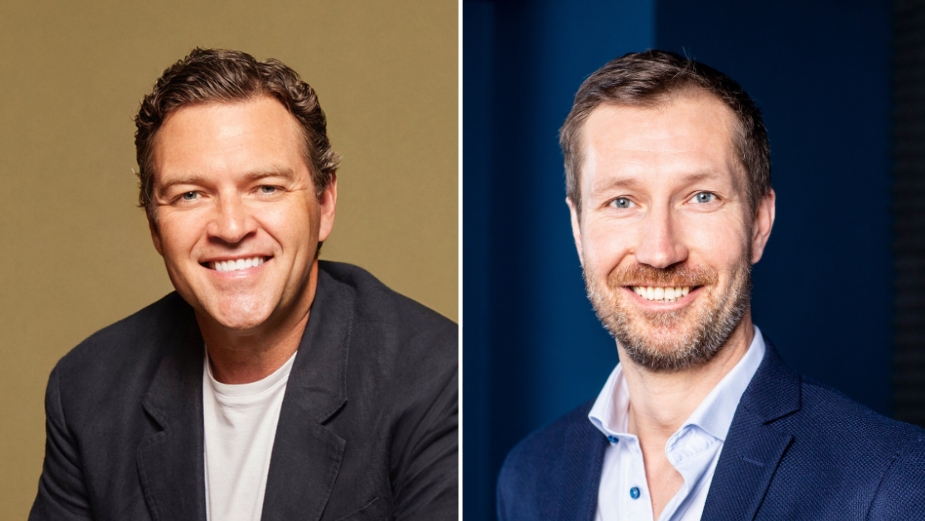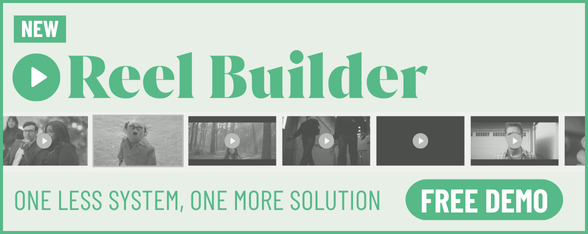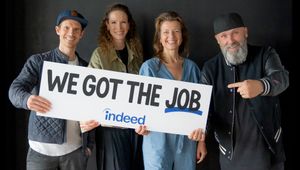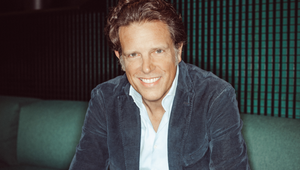
How Serviceplan Group Quietly Became One of Advertising’s Most Resilient and Innovative Agencies

In a year marked by industry upheaval and economic uncertainty, one independent agency group has quietly climbed the global ranks. Serviceplan Grouo closed out 2024 with an 11% revenue increase, took the top spot on WARC Creative 100 and Media 100’s list of independent networks, and earned a place on Fast Company’s Most Innovative Companies. But these milestones weren’t sudden or accidental. Rather, they’re the result of long-term structural bets and a culture of integrated, entrepreneurial thinking that has proven remarkably resilient to industry pressures.
At a time when legacy holding companies are navigating mergers and restructuring, Serviceplan Group’s independence – and the freedoms that come with it – appears to have become one of its most significant competitive advantages. “Autonomy is invaluable,” says managing partner of Serviceplan Group International Markus Noder. “We’re not publicly listed, so we don’t answer to the stock market. We can make decisions today and act on them tomorrow.”
While nimbleness has always been characteristic of independent agencies, Serviceplan Group’s scale sets it apart. With a footprint spanning Europe, North America, and Asia, it offers global capabilities that rival its holding company peers – without some of the baggage. “We’re the smallest group in this global arena,” Markus says, “but we’re proud to be the challenger.”
Central to Serviceplan Group’s model is its House of Communication, which collates disciplines across creative, media, and tech under one roof, rather than separating them into silos or subsidiaries. Instead, teams operate as integrated units. This isn't a new model adopted in response to recent demands for efficiency, it’s been part of the company’s DNA since its founding in 1970.
Within the House of Communication, three core brands operate in tandem: Serviceplan (creative and content), Mediaplus (media and data), and Plan.Net (technology and digital experience). “Each agency needs to be excellent on its own,” Markus says. “But it’s the way we collaborate across them that creates better solutions.”
This structure allows for both agility and scale. Teams can build campaigns quickly, pulling expertise from different disciplines without traditional coordination frictions. It also fosters an informal culture of cross-pollination: media planners easily interacting with creatives, technologists casually bouncing ideas with strategists. The result is a company architecture that encourages practical yet spontaneous collaboration.
One of Serviceplan Group’s most significant growth levers has been its expansion in the US, a market often seen as the proving ground for international agencies. In 2019, the group formed a partnership with San Francisco-based creative agency Pereira O’Dell, a move that yielded both commercial and creative results.
“This has exceeded all expectations,” says Andrew O'Dell, CEO of Serviceplan Americas and founder of Pereira O'Dell. “We’ve quietly built a strong US operation by applying what Serviceplan Group has done so successfully elsewhere, and by supporting entrepreneurs – not just managers.”
Andrew points to the cultural compatibility between the two companies as a key factor in the partnership’s success. But beyond chemistry, Serviceplan Group’s willingness to adapt its model to suit local conditions has been critical. House of Communication was tailored to suit American operational norms, while still preserving the innately collaborative culture that defines its European model.
The US team’s work on award-winning campaigns like ‘855 How to Quit’ – an opioid addiction awareness initiative developed in collaboration with the German and US teams, between Serviceplan and Mediaplus North America – demonstrated how the model has been rolled out at full strength in newer markets.
Another pillar of Serviceplan Group’s success has been its measured but proactive approach to innovation. Unlike some agencies that have scrambled to retrofit AI into their offerings, Serviceplan Group has taken a more deliberate approach – launching specialised AI units in both the US and Europe, focused on building proprietary tools that serve clear business or creative purposes.
Silverside AI, a standalone entity in New York and San Francisco, was formed in collaboration with Pereira O’Dell. In Europe, the AI Lab developed a GDPR-compliant generative tool to address copyright concerns – a move that shows the group’s understanding of regional regulatory differences and its preference for long-term investment over short-term hype.
“We didn’t panic when AI arrived – we started experimenting,” Markus says. “But always with the human at the centre. We see AI as something that should empower our teams, not replace them.”
What stands out here isn’t necessarily the innovation itself, but how thoughtfully it’s implemented. Rather than tout AI as a silver bullet, Serviceplan Group has treated it as a set of tools to enhance processes and efficiency – used not for novelty, but for results. Serviceplan Group’s leadership seems to view culture less as a marketing point and more as an operational asset, keeping teams connected across time zones and business units. That cohesion has become especially valuable as the advertising industry grapples with talent shortages and retention challenges. “You don’t feel anonymous here,” says Andrew. “You can walk over to a creative, a strategist, a CEO – everyone’s reachable. That accessibility moves things forward.”
Importantly, Serviceplan Group's culture also seems to be a tool for resilience. The group weathered the pandemic and ensuing market instability without needing to dramatically restructure or rebrand, relying instead on the consistency of internal relationships and decentralised leadership.
Serviceplan Group’s creative output has also played a significant role in its rise. From the global repositioning of Lufthansa to public-health work in the US, its campaigns balance commercial effectiveness with social consciousness. But rather than positioning this as a pivot toward purpose, the leadership insists it’s always been part of their remit.
“Doing good through advertising has always been in our DNA,” says Andrew, citing the agency’s involvement in national vaccination campaigns and its ongoing work with the Ad Council. It’s less about trend-chasing and more about alignment with long-held values – an approach that feels more sustainable in the long run.
As holding company giants like Omnicom and IPG pursue mergers in search of scale and efficiency, Serviceplan Group presents a counter-argument: that independence, integration, and culture can offer a clearer path to both innovation and growth.
Still, challenges lie ahead. The rapid pace of technological change will test even the most future-focused agencies, and attracting young talent to an industry still battling outdated perceptions remains a significant hurdle. But if Serviceplan Group’s recent performance is any indication, it is unusually well-positioned to meet those challenges – without needing to overhaul its identity.
As Andrew puts it, “We’re not building a new culture – we’ve already got one. And it’s strong.”















